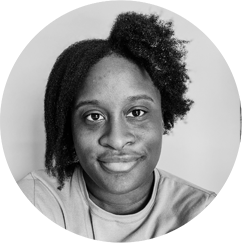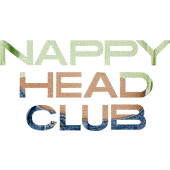It’s interesting because,
I always thought it was me
I always thought I wasn’t doing enough
I couldn’t figure out what I wasn’t understanding?
All along, however I was simply, just existing
I have always been insecure about my natural hair. I can’t recall a time that I wasn’t. In my head I would hear the echo chambers of “It’s not laying right”, “It’s sticking out in the back” , “it doesn’t move” and most commonly “ it doesn’t look like my friends’ ” — my white friends. It’s one thing to feel a certain way about yourself, but another thing, when you have to hear it from someone else, either directly, or indirectly.
While we’re here, can we just unpack “Not having hair” for a bit ?
Think about how nauseating this is: because my hair isn’t growing at the rate that you’d like, or isn’t a length that you deem to be long enough, the literal hair growing out of my scalp is suddenly non existent? Sorry to break this to you, but I do have hair, have you met my friend shrinkage?
One moment that, I still remember pretty well, occurred during my Undergrad, when the app Yik Yak came out. Yik Yak allows you to submit anonymous comments that are available for display as a running thread based on location. There is no other way to describe the app other than it being purely toxic, the lethal result of allowing people to be anonymous with their words. I remember sitting in the cafeteria, amongst my peers, each of us taking turns reading the forums, wondering who each anonymous message could be about. Mid scroll, there was a comment, that without a moment of hesitation, I identified as being about me. It referred to someone’s friend that had “no hair”. The thing about being one of the few Black Women at a PWI is, it didn’t have to have my name attached to it for me to know it was about me.
As a Black woman, it is hard for me to fully describe the emotions that come after being gaslighted to believe that the length of your hair is worthless. To be likened to that of someone who is bald, or without hair, maliciously carries its own undertones. I have never consented to the manner by which the term bald has been used to describe myself and other Black women who don’t meet society’s beauty standards.
Looking back now, it was in those moments when peers made comments about my hair’s appearance, that I realized certain people knew they had autonomy over my body, in regards to my hair, in such a way that left me hurting.
I am 26 years old and to this day, I am still triggered by buns. Repeatedly being told that you’re bald, and don’t have enough hair to fill them out, really does a number on your mental well being. Back in September, I posted about that experience and my aversion to wearing that style. Writing that out, and putting it out to the world, was a moment where I recognized it was safe to start loosely unraveling this web that has covered me.
I’m not sure when I will be able to shake the fact that young boys could talk to another young person, a young Black girl, in the ways that they did. It is not up to me to provide an explanation for this behavior, however I do wonder if they realized that they were being used to echo what society couldn’t say out loud: Regulation of Black hair is a way to maintain anti Blackness rhetoric. That mindset, of feeling empowered to dictate how someone else gets to feel about their own body, gave me a taste of reality: foreshadowing of what my adult years would also be like.
I continued through my collegiate years and postgraduate life with such disdain for my natural hair, that I got to an unhealthy point where I couldn’t go more than 24 hours without getting my hair rebraided. All centered around fears of what people would THINK about me, because of my hair. There was once a point,while dating my current partner, that I wouldn’t let him see my hair in its own natural state because I was embarrassed.
It wasn’t until the pandemic that I had no choice but to sit in my feelings, and really identify who and what was making me feel this way about my natural hair. It’s surreal to think that I never wanted to say the quiet parts out loud: that my being, my beauty and self worth were tied to my hair. It always had been. Sitting with that thought stung just a bit, especially at a time when I had yet to fully accept the way I looked, and wasn’t prepared at all for what this pandemic would throw at me. My access to hair braiders was restricted early on, when March hit. It was during this time that I began to document my natural hair journey as a visual diary, initially for an audience of 1 (myself). I then shared the page with some of my close friends, who I felt safe telling about the account. It’s a humbling feeling to know that, almost one year later, my words have also resonated with others. I am grateful that they found me and have chosen to join this ride with me, which is such a powerful force.
So to all the people like me who’ve been told that they have “no hair,” I’m sorry that you didn’t get the chance to find the beauty in your coils, on your own terms, because someone else made that decision for you. Here’s what I want you to know:
- You get to reclaim your control over your own beauty standards
- Your hair should never be up for discussion
- There is no need to rush this journey- remember we weren’t given time, nor grace
- There is a beautiful community of natural haired folx who have created safe spaces of acceptance, online, where others can be themselves and see themselves reflected, which I can only hope serves as a shield for others.

About the Author:
Keisha Sarpong is a Nebraska based (soon to be Colorado) creative, sharing her journey of redefining hair care as selfcare.




JOIN THE DISCUSSION (0 comments)